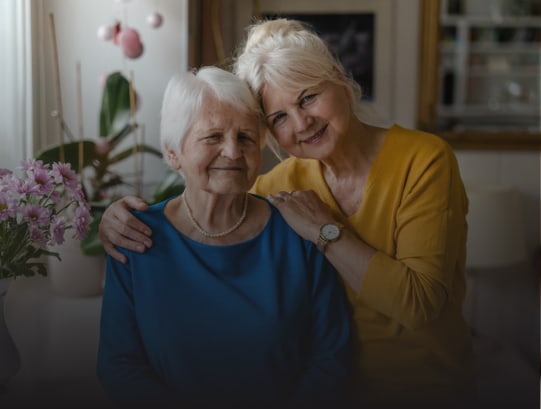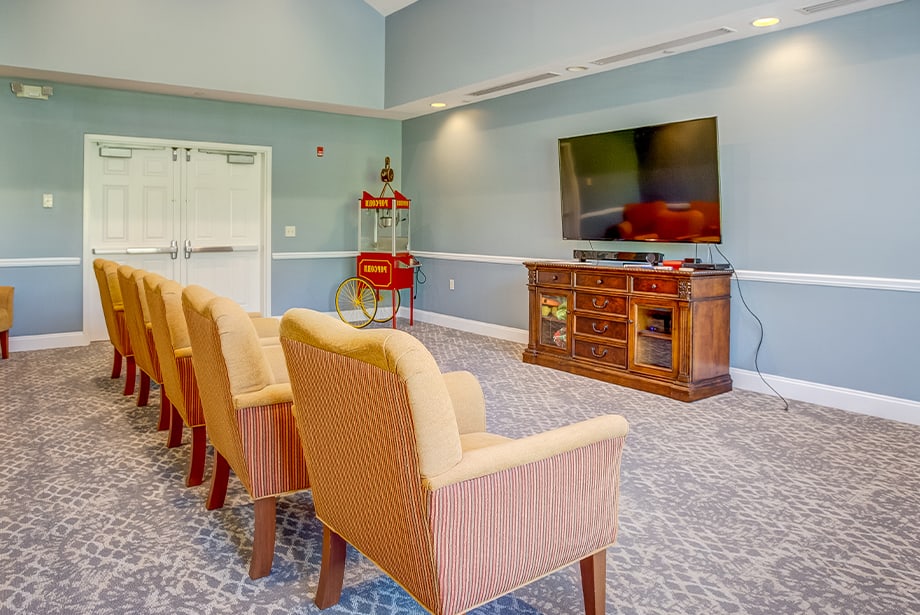Caring for a loved one with dementia is a profound responsibility that often comes with an emotional tug-of-war. Many caregivers find themselves pondering the question of whether it’s okay to leave their loved one alone.
Unfortunately, there isn’t a one-size-fits-all answer when it comes to leaving your mother who needs dementia care alone because it ultimately depends on her capabilities and the disease’s progression.
Your loved one could likely be alone for short durations in the earlier stages of dementia. But eventually, there comes a point where many people with dementia require round-the-clock care for their safety and an overall sound quality of life. If this isn’t feasible, it may be time for the family to explore professional care options like respite care for short-term solutions or memory care for the long-term.
Can I Leave My Loved One with Dementia Alone?
Dementia affects memory, judgment, and the ability to perform daily tasks, making it risky for many seniors with dementia to be unsupervised. The reality is that there’s no single answer to cover every situation, so every decision must be tailored to the individual needs of your loved one.
If this question comes up, talking to your loved one’s healthcare provider may be a good idea. It could signal that it’s time to start thinking about the future regarding long-term senior care options.
Understanding Your Loved One’s Stage of Dementia
Recognizing where your loved one is on the dementia spectrum is essential in making informed decisions about leaving them alone.
Different stages have different needs and challenges, from memory lapses in the early stages to severe cognitive impairments in later stages. Understanding these stages can help you determine what level of supervision is appropriate. The FAST scale is an assessment tool that you can utilize to help provide a picture of your loved one’s care needs.
Consulting with healthcare professionals who specialize in dementia care can also provide valuable insights into your mother’s specific needs. They can assess her capabilities and offer guidance on the level of care required.
It’s important to remember that dementia is a progressive condition, and adjustments may need to be made over time to accommodate changes in your loved one’s abilities. This highlights the importance of considering senior communities that can cater to your loved one’s changing needs when the time comes.
Tips for Caring for a Loved One with Dementia
Caring for someone you love and helping them navigate life with dementia can be complex. Here are a few tips to consider.
Establish a Daily Routine for Stability
Creating a structured daily routine can provide much-needed stability for someone with dementia. Routine offers a sense of predictability, which can be comforting and reduce anxiety. Simple activities, like regular meal times, scheduled walks, or music sessions, can create a rhythm that helps your loved one feel more secure.
Establishing such a routine requires patience and flexibility. Start with consistent wake-up and bedtimes, gradually introducing daily activities that match your loved one’s interests and abilities. It’s essential to remain adaptable, as what works today might need tweaking tomorrow.
Create a Safe Environment to Prevent Accidents
Safety should be a top priority when caring for someone with dementia. Simple changes in the home environment can prevent accidents and promote independence. Ensure that pathways are clear, install grab bars in bathrooms, and use door locks or alarms to prevent wandering.
Consider potential hazards such as sharp objects, toxic cleaning agents, or electrical appliances, and keep them out of reach. Lighting is another critical aspect—well-lit rooms can prevent falls and help your loved one feel more oriented. Regularly assess the living space to ensure it remains safe as your loved one’s condition evolves.
Communicate Effectively & Managing Challenging Behaviors
Effective communication with a loved one who has dementia requires patience and understanding. Use simple sentences, maintain eye contact, and give them time to respond. Non-verbal cues like touch or facial expressions can also convey warmth and support.
Challenging behaviors, such as agitation or confusion, are common in dementia. Remaining calm and empathetic is vital. Try to identify triggers and adapt the environment or routine to minimize distress. Every situation is unique, so developing personalized strategies for your loved one is key.
Memory Care as a Future Option
Balancing personal responsibilities while caring for someone with dementia is not easy, but it’s manageable with the right resources and support. It’s crucial to seek help, whether through professional advice or community support networks. For example, respite care can be a great option when you need a break from caretaking duties. It provides the peace of mind that your loved one will continue to get the care they need and deserve.Reach out to our team at The Enclave of Franklin to book a community tour. We’d love to show you and your loved one the type of compassionate care they can expect to receive when calling our community home.










